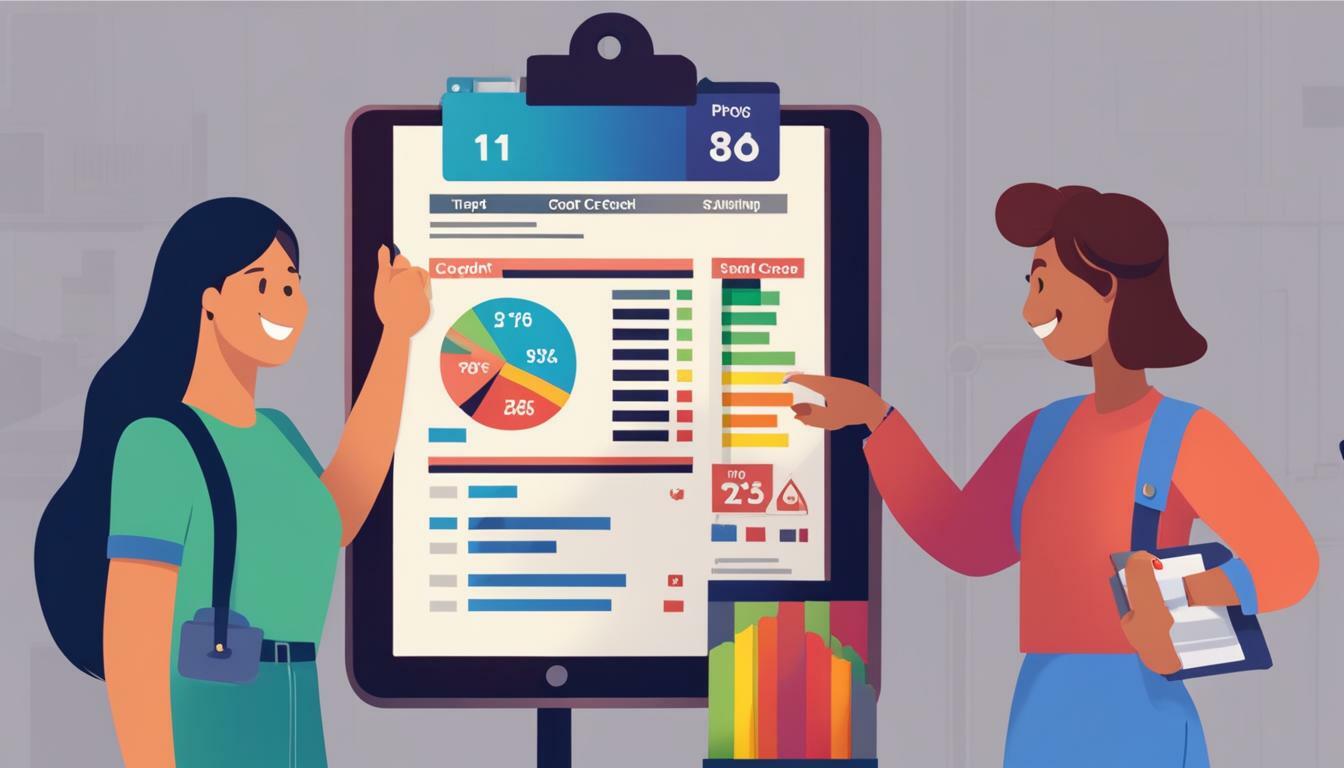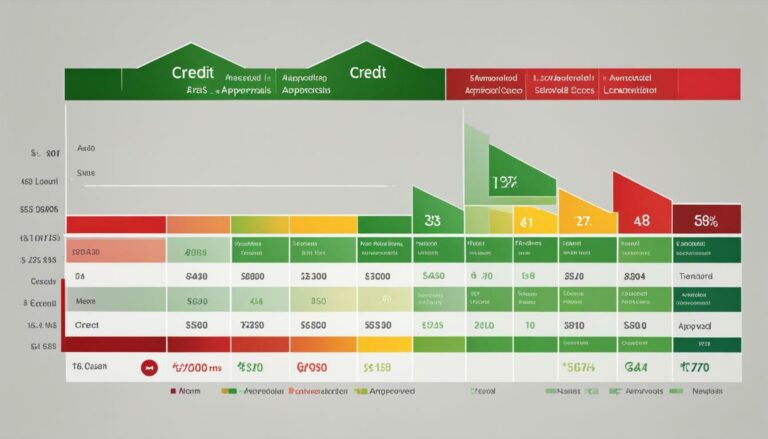Mastering Credit Reporting Etiquette for Couples – Learn How

When couples have joint credit accounts, it is important to have open communication and consent when accessing each other’s credit reports to avoid fraud or identity theft. Sharing credit reports can help couples set financial goals, strategize for cheaper financing, dispute errors, and monitor each other’s credit habits. It is crucial to obtain permission before accessing a partner’s credit report. Asking for consent can be delicate, as some individuals view it as an invasion of privacy, so it should be done respectfully. Open communication about finances can contribute to a healthier and more secure marriage, as financial secrecy and stress are common causes of marital issues. It is advisable to avoid accessing a partner’s credit report without permission, as it may require a subpoena or court order, and this information will likely be given to attorneys or the court rather than directly to you. Couples should also consider not letting credit card rewards go to waste, paying off credit card balances to avoid interest charges, avoiding late payments, not closing old credit cards, and not opening too many new credit cards at once, as these actions can negatively impact credit scores. It is recommended to review credit reports before and after a divorce to ensure accuracy and to separate joint accounts correctly. Building credit independently is also important, even before a divorce is finalized. Regularly checking credit reports and monitoring credit scores can help catch and correct any errors that may appear.
- Open communication and consent are essential when accessing each other’s credit reports.
- Sharing credit reports can help set financial goals and monitor credit habits.
- Asking for permission before accessing a partner’s credit report is crucial.
- Financial secrecy and stress can contribute to marital issues.
- Accessing a partner’s credit report without permission may require legal action.
The Importance of Sharing Credit Reports for Couples
Sharing credit reports can help couples set financial goals, strategize for cheaper financing, dispute errors, and monitor each other’s credit habits. It is a valuable tool for maintaining financial transparency and ensuring that both partners are on the same page when it comes to their creditworthiness.
By sharing credit reports, couples can identify areas where they need to improve and develop a plan to achieve their financial objectives. For example, if one partner has a low credit score, they can work together to improve it by paying off debts or making timely payments. On the other hand, if one partner has a higher credit score, they can use their good credit to secure better financing options for major purchases, such as a home or car.
Additionally, sharing credit reports allows couples to spot any errors or discrepancies that may negatively impact their credit. By reviewing their reports together, they can identify inaccuracies, such as incorrect personal information or unauthorized accounts. This allows them to take prompt action to dispute these errors and prevent any potential damage to their creditworthiness.
“Sharing credit reports promotes financial transparency and fosters trust in a relationship.”
Monitoring each other’s credit habits is another significant benefit of sharing credit reports. Couples can keep track of their joint financial obligations and ensure that payments are being made on time. This helps prevent late payment fees, penalties, and the accumulation of debt. It also allows for early intervention if any issues arise, such as missed payments or suspicious activity.
🚨 TUIC Errors + Low Credit Score?
CreditScoreIQ helps you build credit faster by reporting utility bills to all 3 bureaus—while you dispute errors.
Start Building Credit Today →The table below provides a summary of the dos and don’ts for couples when it comes to credit reporting:
| Do | Don’t |
|---|---|
| Share credit reports to set financial goals and strategize for cheaper financing. | Access a partner’s credit report without permission. |
| Communicate openly about finances and credit habits. | Let credit card rewards go to waste. |
| Monitor each other’s credit to identify errors or discrepancies. | Carry high credit card balances. |
| Take prompt action to dispute errors on credit reports. | Make late payments. |
| Pay off debts and make timely payments to improve credit scores. | Close old credit cards. |
Sharing credit reports can be a powerful tool for couples to achieve financial success together. It promotes financial transparency, fosters trust, and allows for effective credit management. By following the best practices outlined in this section, couples can navigate the world of credit reporting with confidence and build a solid foundation for their financial future.

Asking for consent to access a partner’s credit report should be done respectfully and with open communication about finances to contribute to a healthier and more secure marriage. It is essential to recognize the delicate nature of this request, as some individuals may view it as an invasion of privacy. However, understanding each other’s credit history is crucial for making informed financial decisions as a couple.
Financial secrecy and stress are common causes of marital issues, and being open about credit reports can help alleviate these concerns. By sharing credit reports, couples can have a comprehensive understanding of their joint financial situation, set goals, and create strategies for managing debt and financing. It also enables them to identify any errors or discrepancies that may exist and take appropriate actions to dispute or correct them.
In this process, it is essential to emphasize the need for permission before accessing a partner’s credit report. It is recommended to have an open conversation about this topic and establish clear guidelines for accessing credit information. By setting these boundaries, couples can maintain trust and ensure that credit reports are accessed responsibly and with the best interests of both individuals in mind.
| Key Points: | Benefits of Handling Credit Reports with Respect and Consent: |
|---|---|
| 1. | Open communication about finances contributes to a healthier and more secure marriage. |
| 2. | Sharing credit reports helps couples set financial goals and create strategies for managing debt and financing. |
| 3. | Accessing credit reports with permission allows for the identification and correction of errors or discrepancies. |
| 4. | Establishing clear guidelines for accessing credit information maintains trust and ensures responsible behavior. |
Building a strong foundation of trust and open communication in your marriage is essential for financial success. By handling credit reports with respect and consent, you can navigate the complexities of your financial journey together, ensuring a secure future for both you and your partner.
Best Practices for Maintaining Good Credit as a Couple
To maintain good credit as a couple, it is advisable to avoid accessing a partner’s credit report without permission and to take certain actions to protect credit scores. Open communication and consent are essential when it comes to accessing each other’s credit reports, as it promotes trust and prevents potential issues like fraud or identity theft. It’s important to remember that financial privacy is a sensitive topic for many people, so asking for permission should be done respectfully and with understanding.
One of the key practices for maintaining good credit is to avoid letting credit card rewards go to waste. Many credit card issuers offer various rewards, such as cashback or travel points, which can be beneficial for couples. By using credit cards responsibly and redeeming these rewards, couples can save money or enjoy travel perks. However, it’s crucial to manage credit card balances by paying them off in full and on time to avoid interest charges. Late payments can have a significant negative impact on credit scores.
Another important practice is to avoid closing old credit cards. Closing credit card accounts, especially those with a long credit history, can shorten the average age of credit and potentially lower credit scores. It’s generally recommended to keep old credit card accounts open, even if they are not actively used, to maintain a favorable credit history length.
| Best Practices for Maintaining Good Credit as a Couple |
|---|
| Obtain permission before accessing a partner’s credit report. |
| Communicate openly about finances to prevent secrecy and stress. |
| Avoid accessing a partner’s credit report without permission. |
| Utilize credit card rewards responsibly. |
| Pay off credit card balances in full and on time to avoid interest charges. |
| Avoid closing old credit card accounts. |
Lastly, it’s important to be cautious about opening too many new credit cards at once. Frequent applications for new credit can negatively impact credit scores, as it may raise concerns about financial stability or the potential for excessive debt. Instead, it’s advisable to apply for credit when needed and to manage credit accounts responsibly.
By following these best practices, couples can maintain good credit and enjoy the benefits of a healthy financial standing. Regularly reviewing credit reports and monitoring credit scores is also recommended to catch and correct any errors or discrepancies that may occur. Taking proactive steps to protect and improve credit as a couple contributes to a solid foundation for future financial success.

During and after a divorce, it is important to manage credit reports by reviewing them for accuracy, separating joint accounts correctly, and building credit independently. Divorce can have a significant impact on your financial situation, and taking proactive steps to protect your credit is crucial.
One of the first things you should do is review your credit reports to ensure that all information is accurate and up to date. This includes checking for any errors, such as incorrect balances or accounts that do not belong to you. You can request a free copy of your credit report from each of the three major credit bureaus annually. Reviewing your credit reports will help you identify any potential issues and address them promptly.
When separating joint accounts, it is important to do so correctly to prevent any negative impact on your credit. Close joint accounts whenever possible and convert them into individual accounts. This will ensure that any future activity on those accounts does not affect your credit standing. Additionally, make sure to remove your ex-spouse as an authorized user on any of your accounts, and update your contact information with creditors to ensure that you receive all important communications.
Building credit independently is essential for your financial well-being after a divorce. Start by establishing your own credit accounts, such as credit cards or small loans, in your name. Make timely payments and keep your credit utilization low to demonstrate responsible credit management. Regularly monitoring your credit reports and scores will help you track your progress and catch any potential issues. Remember, divorce can be a challenging time, but taking control of your credit will set you on a path to financial stability and independence.

| Credit Reporting Tips for Married Couples | Credit Reporting Guidelines for Couples |
|---|---|
| Review credit reports for accuracy | Obtain permission before accessing partner’s credit report |
| Separate joint accounts correctly | Avoid accessing partner’s credit report without permission |
| Build credit independently | Avoid letting credit card rewards go to waste |
| Avoid carrying high credit card balances | |
| Avoid making late payments | |
| Avoid closing old credit cards | |
| Avoid opening too many new credit cards at once |
Conclusion
In conclusion, mastering credit reporting etiquette for couples requires open communication, consent, and responsible credit management to build a financially secure future together.
When couples have joint credit accounts, it is important to have open communication and consent when accessing each other’s credit reports to avoid fraud or identity theft. Sharing credit reports can help couples set financial goals, strategize for cheaper financing, dispute errors, and monitor each other’s credit habits.
It is crucial to obtain permission before accessing a partner’s credit report. Asking for consent can be delicate, as some individuals view it as an invasion of privacy, so it should be done respectfully. Open communication about finances can contribute to a healthier and more secure marriage, as financial secrecy and stress are common causes of marital issues.
It is advisable to avoid accessing a partner’s credit report without permission, as it may require a subpoena or court order, and this information will likely be given to attorneys or the court rather than directly to you. Couples should also consider not letting credit card rewards go to waste, paying off credit card balances to avoid interest charges, avoiding late payments, not closing old credit cards, and not opening too many new credit cards at once, as these actions can negatively impact credit scores.
It is recommended to review credit reports before and after a divorce to ensure accuracy and to separate joint accounts correctly. Building credit independently is also important, even before a divorce is finalized. Regularly checking credit reports and monitoring credit scores can help catch and correct any errors that may appear.
FAQ
The Importance of Sharing Credit Reports for Couples
Why is it important for couples to share credit reports?
What are the benefits of sharing credit reports as a couple?
How can sharing credit reports help in setting financial goals?
Why is it important to monitor each other’s credit habits?
Handling Credit Report Access with Respect and Consent
How should couples ask for permission to access each other’s credit reports?
Why is respectful communication about finances important in a relationship?
What can happen if a partner accessed another partner’s credit report without permission?
Best Practices for Maintaining Good Credit as a Couple
What actions should couples avoid that can negatively impact their credit scores?
Why is it not advisable to access a partner’s credit report without permission?
How can letting credit card rewards go to waste affect credit scores?
Managing Credit Reports During and After Divorce
Why should couples review their credit reports before and after a divorce?
What is the importance of separating joint accounts correctly during a divorce?
When should individuals start building credit independently during a divorce?
Conclusion
Ready to Improve Your Credit?
Disputing TUIC errors is step one. Step two? Boost your score by reporting utility payments with CreditScoreIQ.
Get Started Now (Only $1 Trial) →3-bureau reporting • $1M identity insurance • Dark web monitoring






